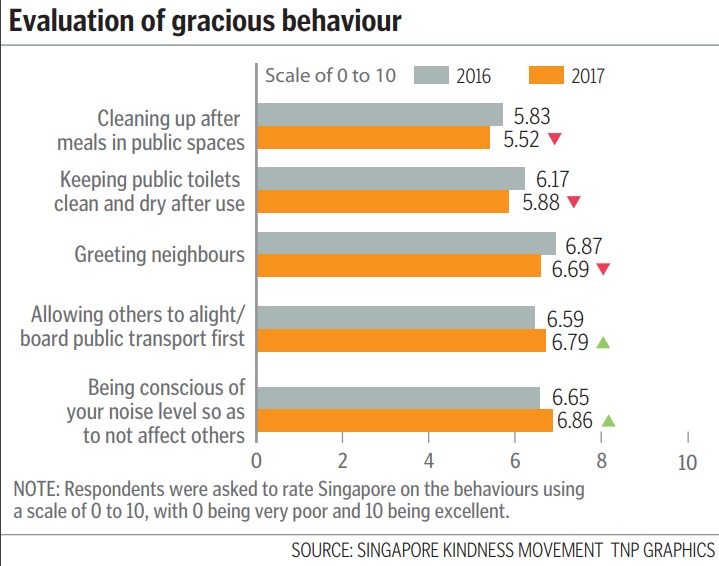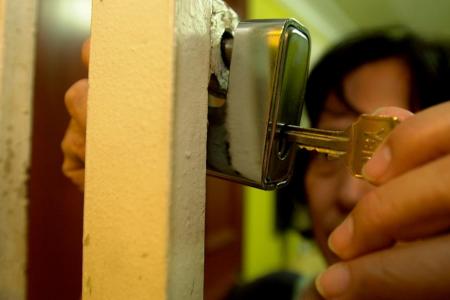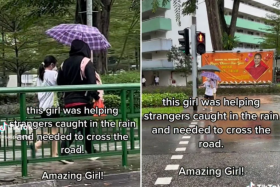People in Singapore less concerned about neighbourliness - survey
People in Singapore less concerned about neighbourliness: Singapore Kindness Movement survey
Singapore residents are caring less for neighbourliness and interacting less with their neighbours, but most do not see it as a bad thing.
This is according to the Graciousness Survey by the Singapore Kindness Movement (SKM) released yesterday.
A total of 3,066 Singaporeans, permanent residents and foreigners were surveyed over two phases, from July to August last year and from December last year to this January.
Only a quarter of the 2,172 Singaporeans and permanent residents interviewed said they want greater neighbourliness, down from 29 per cent last year.
More people (13 per cent, compared with 9 per cent last year) said they avoided greater neighbourliness as they wanted to maintain their privacy.
Compared to last year, fewer people exchanged greetings or struck up casual conversations more than three times a week with their neighbours.
One in 10 did not have any interaction with their neighbours.
SKM general secretary William Wan said the survey results reflect the new normal - a result of the long working hours here.
"Singaporeans are happy with the state of neighbourliness, whereby we all live happily without being deeply involved with each other," he said.

He hopes people here would take more time to build deeper relationships with their neighbours. "There is a saying that faraway relatives are not as good as nearby neighbours when a crisis happens," he said.
Mr Wan added that a relationship with neighbours would make Singapore more secure.
"In a lot of reports after a terrorist attack, the perpetrator is discovered to have lived in a quiet neighbourhood and made bombs at home," he said.
"If our neighbours are strangers to us, and they are plotting something, we will have no idea, because we do not even know who they are.
"If we have good relationships with our neighbours, then we can all look out for and help each other in times of crisis."
The survey also revealed year-on-year drops relating to gracious behaviour, indicating less consideration for others. These included clearing up after meals and keeping toilets clean.
While almost all parents in the survey agreed they should play the primary role in inculcating moral values in their children, they said it was a challenge.
Mr Wan said a lack of time appears to affect the graciousness of Singaporeans significantly, and that a study could be needed to explore this more deeply.
He said: "If we do not have time to make deeper relationships, then it could lead to greater social distance."
But he said that overall, the results were heartening.
"I am heartened to learn that Singaporeans generally remain positive about the state of kindness and graciousness in Singapore, given the prominence of some incidents that have gone viral recently," he said.
"We need to continue to strive for kindness - both online and face-to-face - so as to make society... one which we all would like to live in and belong to."
Get The New Paper on your phone with the free TNP app. Download from the Apple App Store or Google Play Store now



